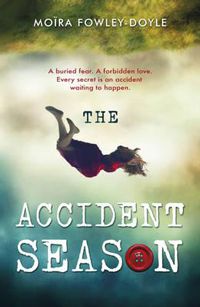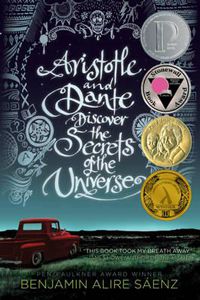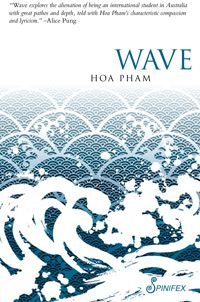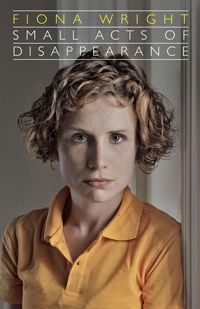Each week we bring you a sample of the books we’re reading, the films we’re watching, the television shows we’re hooked on or the music we’re loving.
Emily Gale is reading The Accident Season by Moira Fowley-Doyle
Months ago I was able to sneak a look at the first page of The Accident Season, and it made a strong first impression. The premise immediately appealed – a family (a mother and three teenagers) meet with a series of accidents every single October, during which time their lives are on hold as they obsess over multiple cuts, breaks and bruises, as well as their memories of fatal accidents in the past that have broken them on the inside.
I started to read it on a short plane journey, which probably seems like a poor choice for a nervous flyer, but I had no regrets – it was utterly absorbing, a great mix of contemporary young adult novel and a touch of slightly offbeat. Halfway through, although my feet were by then on solid ground, The Accident Season started to do its best to pull the rug from under my feet with a mixture of startlingly real scenes and dreamlike episodes. At times I worried that the promise of the first half wouldn’t be fully realised, and I’d be left with no answers, just the aftershock of the mounting tension. But I wasn’t disappointed. This is a bold debut, and Moira Fowley-Doyle is definitely one to watch.
Amy Vuleta is reading Aristotle and Dante Discover the Secrets of the Universe by Benjamin Alire Saenz
It’s school holiday time, and the sun is (mostly) shining in St Kilda this week so the store is full of young shoppers with excellent taste, and I’m spotting lots of carefully selected YA books cross the counter to be taken home and devoured by the book-savvy youth of Melbourne. One such title that I was reminded to check out was Aristotle and Dante Discover the Secrets of the Universe by Benjamin Alire Saenz.
This one has been on my to-read list for a while – it’s won a tonne of awards (including the Stonewall Book Award and Lambda Literary Award, and the author is a Pen/Faulkner award winner) and was also highly recommended by one of my queer book club members. The novel is the story of two mismatched teenagers who form an unlikely friendship, and through that they unlock truths about themselves and their place in the world. It’s one of those YA novels that is full of intelligence and humour and beauty that you just feel filled up with all the love and desire and longing of youth. I’ve only just begun reading it, but already this novel is touching, affirming, and has me filled with hope!
Bronte Coates is reading Wave by Hoa Pham
I picked up this novella after reading this endorsement from Alice Pung: “ Wave explores the alienation of being an international student in Australia with great pathos and depth, told with Hoa Pham’s characteristic compassion and lyricism.” The book follows the story of two girls, Midori and Âu Cô, who fall in love, in the middle of tragedy and loneliness. It’s a short, evocative read, and the miniature fables that Midori writes are beautifully crafted.
This week I also picked up a copy of JiHyeon Lee’s gorgeous wordless picture book, Pool. The artwork is stunning and the story, of two shy kids who go on an underwater adventure, is tender and lovely.
Nina Kenwood is reading Small Acts of Disappearance by Fiona Wright
I’ve just finished reading an advance copy of Fiona Wright’s Small Acts of Disappearance (out in September). I loved this book.
It is made up of ten essays, each one exploring Wright’s eating disorder. The essays are raw and intimate, but Wright’s prose is controlled and thoughtful, so you never feel as though she has revealed too much. Wright is not insular – she’s interested in the disease itself, and what it means to be hungry, and what can lead someone to starve themselves. Some of the best pieces in the book relate to other literature, when Wright reflects on novels she has read that feature characters with eating disorders or addictions that are consuming their lives. Time and again, Wright circles back to how she became anorexic, examining the stories she told herself to explain her behaviour, and the ways she reassured herself she wasn’t really one of those women. It’s fascinating and heartbreaking to read.
This book is good. It’s very, very good, and I hope many people read it.






